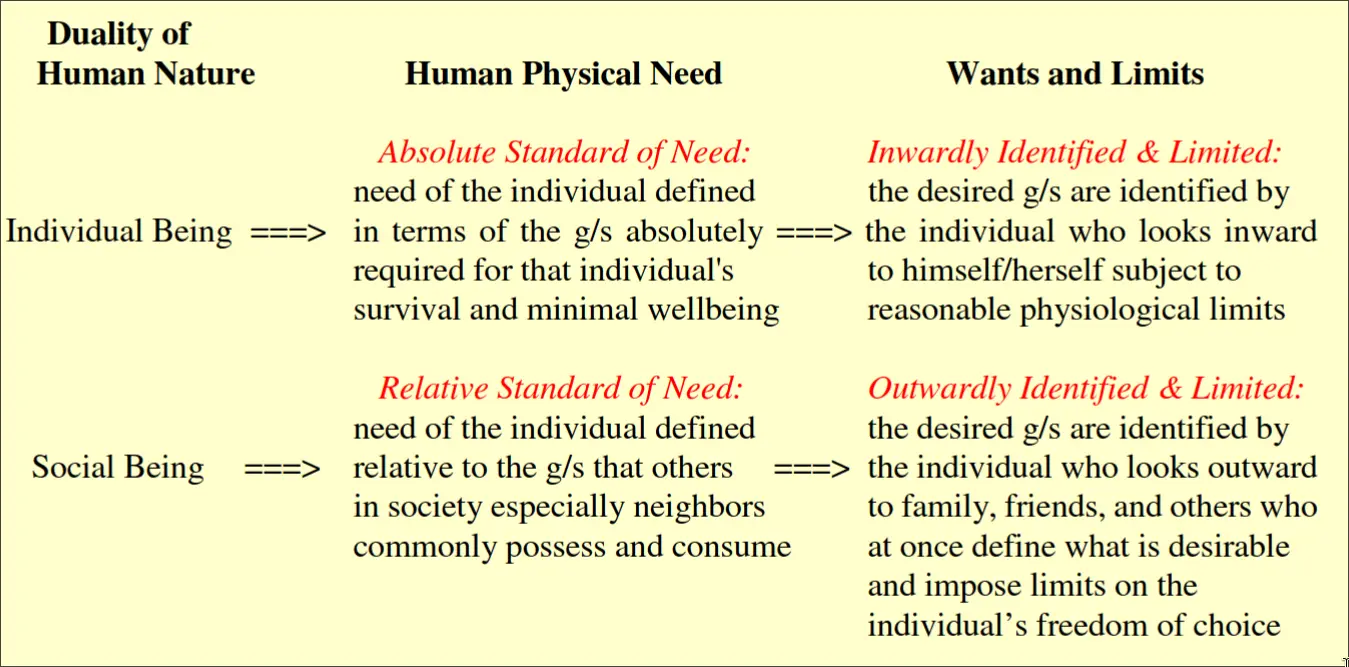This paper by Edward J O’Boyle is an attack on the conventional wisdom that: “Resources are limited but wants are unlimited”.
Wants are Limited
By the Law of Marginal Utility, there is a limit to your wants.

- After a certain point of consumption, the person hits Limit 1. They notice that the increase in total utility diminishes with every additional unit
- Further on, the person hits Limit 2. Now, the increase in utility is zero. The consumer experiences maximum utility
Wants are not Cravings or Addictions
Cravings and addictions are unlimited, but they signify a loss of control. This craving or addiction cannot be the same as a controlled want.
Unmet Needs
Unmet needs only exist when there is a social need that the private sector is not able to meet.
Problems of Liberalism
By allowing people to have free choice, you run the risk of:
- People spending their resources on meeting obsessions and addictions instead of their requisite needs
- The powerful using the state to enhance their own personal wellbeing rather than helping the weak.
Duality of Human Nature
 Every person has a set of individual needs/wants and a social needs/wants.
Every person has a set of individual needs/wants and a social needs/wants.
These influence the Principle of Subsidarity
Economic Resources are Unlimited
If we account charity and care as economic resources, then they are unlimited.
Charitable Work Example
The careless worker produces less value than the worker heartened by charity. The worker that is charitable will routinely provide more and higher quality work.
Excess value from customer to owner can also come from a goodwill between them. This goodwill produces:
- Higher quality goods
- Better customer relations